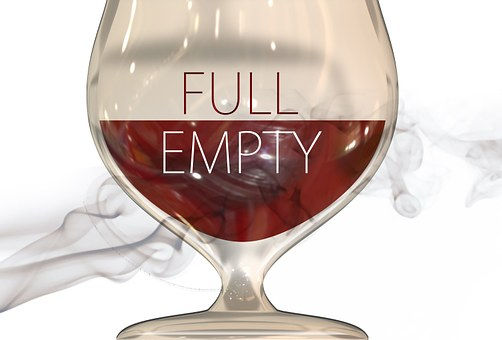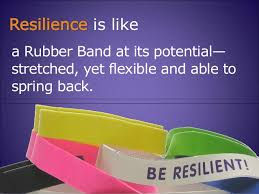The Rubber Band Effect
- Jean Culver
- Aug 28, 2019
- 4 min read
"It's not what happens to you, but how you react to it that matters."
- Epictetus, Greek Philosopher
The Change in Mood
Have you ever been at a party or gathering and someone you didn't know came up and started chatting? Since you really didn't know many of the people there, you were happy to have someone to talk with. But suddenly, it was all you could do to listen to them anymore. All you wanted to do was to find a way to politely excuse yourself and get away.
What had started as a fun get-to-know conversation with someone had turned into a depressing, glass is half-empty tale of woe. You'd been feeling excited for the event, excited to meet new people and have a good time. All of a sudden, you were feeling depressed, anxious and upset.
Half-Empty or Half-Full
Is your glass half-empty or half-full or does it even matter?

Actually your attitude toward yourself and your outlook on life can impact your health.
Positive thinking, the glass half-full attitude, doesn't mean putting your head in the sand and ignoring unpleasant times or situations. It simply means approaching unpleasantness in a more productive and positive manner. Thinking the best is going to happen vs. the worst.
Having a positive attitude, has many benefits. Research shows that people who regularly focus on the positive have lower rates of depression, increased life span, greater resistance to the common cold, better physical well-being, lower blood-pressure, better cardiovascular health, reduced risk of death from cardiovascular disease and better coping skills during times of hardship or stress.
Positive Emotions
Positive emotions can broaden our perspective of the world, thus inspiring more creativity, wonder and options. Over time this creates lasting emotional resilience to whatever life brings us.
Positive emotions help the body recover from the ill effects of constant negative emotions. Over time they help us become more resilient in times of crisis or stress. This emotional resilience is like a rubber band, no matter how far a resilient person is stretched or pulled by negative emotions, one has the ability to bounce back.

Positive emotions include playfulness, gratitude, awe, wonder, love, interest, serenity, joy, hope, pride, amusement, inspiration and feeling connected to others.
Negativity Bias
Scientist Barbara Fredrickson, states; "We are wired to defend against threat and loss in life and therefore tend to prioritize bad over good." This is fine if we need to remain alert in a dangerous situation, but for the most part it is counter-productive.
This 'negativity bias' means we spend too much time thinking about minor frustrations like a disagreement at work, or someone cutting us off on the highway or a spat with our best friend. Focusing on this prevents us from experiencing all the chances we have every day for wonder, awe and gratitude.
So how do we off-set the normal negative emotions we experience? Fredrickon suggests each time a 'negativity bias' threatens, we intentionally focus on three positive emotions. Whether the emotion is joy or gratitude or love or laughter; remember, there are many small things in life that are easy to take for granted. Simply waking up in the morning and seeing the sunshine and hearing the birds sing is a beautiful thing.
Thinking and feeling gratitude for these positive things in life will reverse the physical effects of negativity and build up our psychological resources to impact a joyful, prosperous life.
Practice Positive Thinking
The first step in focusing on a positive attitude is to identify areas of your life that need to change. It might be job related, or a relationship, or even money. Start small and work on one area at a time.
Throughout the day, stop and ask yourself what you are thinking about. Are your thoughts focused on good things or on the negative events of the day or week. Really focus on this. Most times we aren't even consciously aware of why we might be feeling down or anxious. Creating this awareness allows us to control our thoughts and overcome negativity.
Seek humor in your daily life. Look for ways to smile and even laugh out loud. Laughter is good for the soul and certainly relieves stress and negativity.
Who do you hang around with? Are your friends positive or do they tend to focus and talk only about the negative things going on in their life? Remember, negative people tend to increase your stress level and bring you down to their emotions. Allow yourself to be in control of your feelings, not others.
Focus on a healthy lifestyle, get more physical activity, follow a healthy diet and drink plenty of water.
Begin your day by waking up and thinking of all the great things you can accomplish during the day. Pick up an inspirational book and read inspiring thoughts of love, kindness, gratitude, or giving.
End your day with a gratitude journal and write down all the good things you have experienced during the day, no matter how small. You might be surprised at how many things you think of.
The Relationship
Brene Brown, PhD, tells us there is a relationship between joy and gratitude. She states that acknowledging the good aspects of life and giving thanks have a powerful impact on emotional well-being. The surprising twist to this relationship of joy and gratitude is this; 'It's not joy that makes us grateful, but gratitude that makes us joyful.
This tells me that we all have the ability to experience true joy, no matter.









Comments